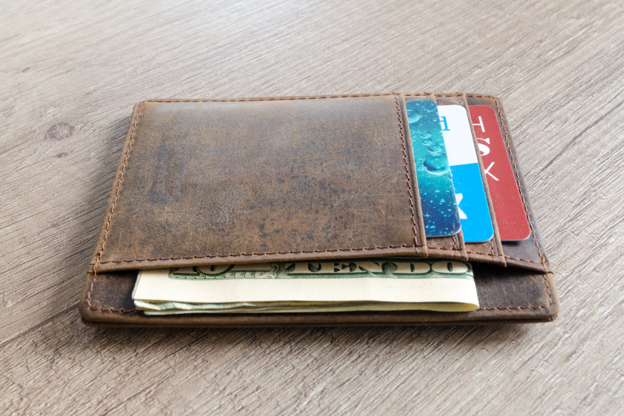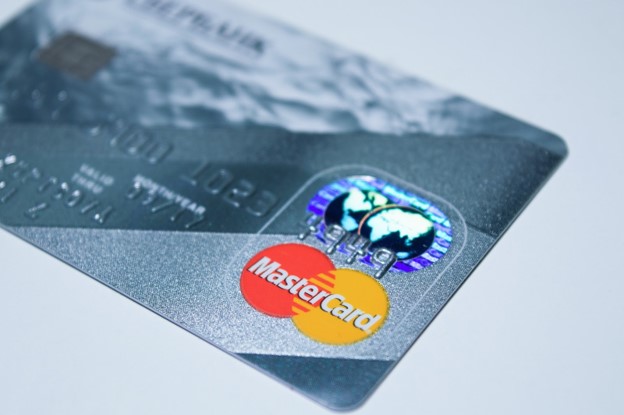The Different Factors That Make Up Your Credit Score

Your credit score can be the deciding factor in a number of different life milestones like buying your first car. What may seem just like any other number, has a significant impact on your life. If your credit score isn’t high enough, chances are your loan application at a bank will be denied.
Luckily, there are no credit car loan alternatives, such as autoloans.ca. However, if your goal is to improve your credit score, it’s important to be financially fluent. Part of that is to be aware of what exactly goes into a credit score calculation and what factors will impact your score.
In this blog, we will help you to understand credit scores and explore in-depth some useful insights on what factors impact it. Let’s dive in!

What is a Bad Credit Score?
A person with a bad credit score likely has a poor history of paying their bills. While it’s understandable that life happens and things may keep you from paying your bills on time, failing to do so will have repercussions on your credit score.
If you fall into this group of individuals, you may have trouble when applying for a loan to borrow money; car loans included, especially at competitive interest rates. This is because bank lenders consider you to be a high default risk.
You may be wondering how the lenders determine your credit score? If you have ever signed up for a credit card in Canada, then you have a credit file at the three major credit bureaus: Equifax, TransUnion, and Experian. The information in these files contains your bill payment history and how much money you owe, which is used to calculate your score and determine your creditworthiness.
It is always important before approaching any lender for a car loan, to understand your Equifax credit score. If it is below the minimum, try to embark on bad credit repair process. In Canada, most lenders will consider someone to have bad credit when their score is less than 580.
What is a Good Credit Score?
Equifax Canada will always consider any score above 660 to be a good credit score. It means that you have complied with the majority of credit score factors. If you possess a good credit score, you can easily borrow from traditional lenders at very competitive interest rates. More importantly, you will get faster approval for credit and loans.
Other benefits that come with these good credit scores include:
- Approval for higher limits
- Better car insurance rates
- Avoiding security deposits
- More negotiation power
- Bragging rights.
If you want to enjoy these privileges on your car loan, you should embark on bad credit repair process immediately.

So, What are the Credit Score Factors Taken into Consideration?
Is your need for a car loan being delayed by a bad credit score? The process of improving it need not be a daunting undertaking. However, you need to understand the credit score factors that will come into play when repairing your bad credit score.
These include:
Your Payment History
Payment history counts for 35 percent in the Equifax credit score. In fact, it is the most important factor in the calculation of credit score.
Equifax Canada uses your history of debt payment in forecasting your future paying trends. Some payment complications like bankruptcy, collections, charge-offs, foreclosure, repossession, tax liens, among others can seriously harm your credit score.
Additionally, Equifax takes into serious consideration the severity of reported missed payments and the frequency in which they happen. Missing a credit card payment is more serious than missing a loan payment and it has severe consequences on your credit score. Remember, with the launch of Experian Boost in 2019, you can take better control of your debts by self-reporting good behavior, which your lender may fail to do so.
Debt Levels and Credit Utilization
Available credits and debts make up to 30 percent of your credit card score.
Equifax Canada will always consider your overall debt and the ratio of credit card balance when calculating your credit score. Some of the aspects they consider include borrowers who don’t handle their debts responsibly, individuals who max out credit cards, people with low credit card balances, and individuals who almost get close to their credit limits.
According to Equifax, to be on the safe side you should ensure that your credit card utilization is below 30 percent. Always remember, having too much debt or high balances can harm your credit score. Additionally, note that the two factors we have discussed contribute to over two-thirds of your credit score ratings so pay keen attention to them.
The Age of Credit History
Have you ever stopped to think about how old your credit account is? This is one of the factors that contributes up to 15 percent of your credit score.
The reason that the age of credit history matters is that it paints a clear picture of your long-term financial behavior. It shows your experience in handling credit. Also, closing an existing account can harm your credit score while opening new accounts improves it. Remember, sometimes opening many loan accounts may suggest you are in trouble and need a lot of credit.
Types of Credit on your Report
Two types of credit accounts exist in Canada, namely installment credit and revolving accounts. To improve your Equifax credit score, you need to have both of them on your credit report. It shows that you have experience in managing different types of credit.
Having secured loans together with student and credit loans is always a great plus as well. This factor contributes to 10 percent of your credit score. It’s important that even though this factor does not significantly affect your rating to not overlook it.
Number of Credit Inquiries
Did you know that every time you submit for a credit card check it is recorded in your credit report as a credit-based application? Making inquiries once or twice may not cause a significant problem on your credit score rating. However, several applications may harm your Equifax credit score ratings. It is imperative to keep your applications to a minimum as they contribute up to 10 percent of your credit score.
Alternatively, using the “Soft” inquiry option does not affect your score. It’s also good to know that inquiries made in the last one year disappear after 24 months.

How can I Quickly Raise my Credit Score?
Like it or not, your credit score will dictate almost every financial milestone in your life, such as whether you will be approved for a car loan or a house mortgage. With the Canadian economy having recovered from the recent recession, lenders are paying much more attention to people’s credit scores.
Sadly, quite a good number of Canadians don’t reach the required minimum when applying for loans due to their credit scores. If you are among this group and wish to get a car loan it is time for bad credit repair, or find a no credit car loan lender such as autoloans.ca.
If improving your credit is your top priority, following the below steps will put you in the clear in no time:
Increasing your Credit Limits Matters
Sometimes you may not be in a position to make a payment on your credit balance. The best approach to take involves improving your credit utilization rate. This happens by contacting your creditor and requesting a credit limit increase.
For instance, if you have maxed out your $2000 card and the balance remains the same requesting an increase to a $4,000 limit, helps you cut your credit utilization by half. This technique helps to mitigate a problem that could temporarily compromise your Equifax credit score.
Making Frequent Payments is Key
By making small payments frequently in a month, you improve a credit score factor known as credit utilization. The payments are called micropayments and help to keep your credit card balance down, which has a significant effect on your credit score.
More importantly, credit card lenders submit credit card balances at the end of every month to credit bureaus such as Equifax. Don’t always wait for your debt to accumulate towards the payment deadline dates.
Opening a New Account is Crucial
Sometimes you may be stuck with a card issuer who is reluctant in increasing your credit limit. Applying for a new card from a different issuer is a wise move. Your card utilization rate will be based on all your open balances and lines of credits.
For example, say you have $10,000 set as your credit card limit, you owe $5, 000, and you possess just one account. Meanwhile, your friend Eric has a $10,000 credit card limit dispersed across two credit issuer and owes $5,000 in total. Both individuals will have a credit utilization of 50 percent regardless of the number of accounts. However, Eric stands a better chance to get an increase in the credit card limit because he has more options than you do.
Keep in mind though that opening too many accounts may also be detrimental to your credit since the credit bureaus may assume that you are in financial trouble.
Never Ignore Credit Report Errors
A slight mistake on your credit card report may affect your score negatively. This is why you should never let go of an error in your report. Every credit bureau entitles you to a free credit report every 12 months. It is within your rights to request for them and examine it for mistakes such as payments made on time but are marked late. Don’t let someone else’s errors lower your credit score. The report always provides a means to dispute your credit report so the process is easy.
Never Close Credit Card Accounts
Did you know that by closing your credit card account you not only lose your limit, but you also can’t stop credit bureaus from calculating credit utilization? This will significantly affect your credit score negatively. However, if you keep your card open without using it, it will prompt an issuer to deactivate it. Therefore, keep it open to use occasionally.
Don’t Forget that Diversity on your Credit Reports Matters
As we mentioned earlier, there are a couple of different types of credit. By diversifying your debts and loans across the aforementioned platforms you prove your prowess and experience in handling different types of credit. This scenario helps you to increase your Equifax credit score and eventually your creditworthiness.
Becoming an Authorized User is a Great Plus
You may be in a situation where you have tried to boost your credit score, but still, you are stuck. Look for someone either a friend or family member who manages their money well and let them add you as an authorized user to their accounts. Make sure that the account you seek to be added on is reasonably old and has created a good history. Most people may be paranoid so try to make them understand your intentions. They may not give you their account number or card but they will boost your overall credit score. This process helps many people who have reached a dead-end in improving their score.

Final Thoughts
It is clear that building a credit score can be a lengthy process since you won’t be able to change your score overnight. So, what if you have tried your best but you can’t seem to reach the minimum target to get a car loan? Don’t lose hope. The good news is that loan lenders exist out there specifically to provide bad credit loans, including autoloans.ca!
For more information on how to secure a car loan in Ontario, including no credit car loans, contact us.

